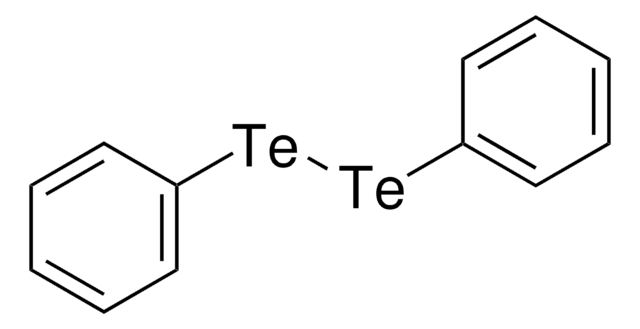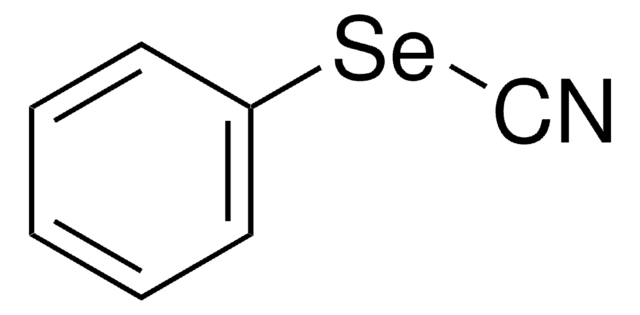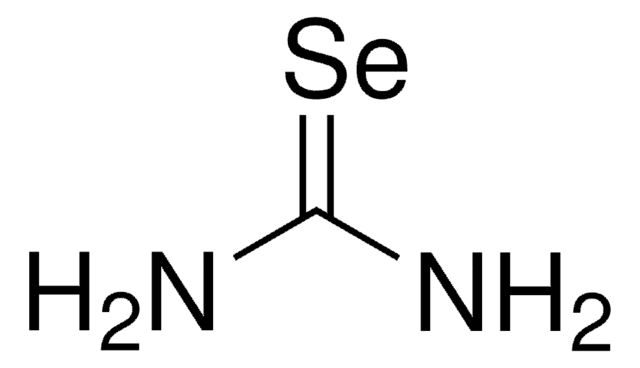328502
Dimethyl diselenide
96%
Synonym(s):
Methyl diselenide
About This Item
Recommended Products
Quality Level
Assay
96%
form
liquid
refractive index
n20/D 1.6388 (lit.)
bp
155-157 °C (lit.)
density
1.987 g/mL at 25 °C (lit.)
SMILES string
C[Se][Se]C
InChI
1S/C2H6Se2/c1-3-4-2/h1-2H3
InChI key
VLXBWPOEOIIREY-UHFFFAOYSA-N
Looking for similar products? Visit Product Comparison Guide
General description
Application
Signal Word
Danger
Hazard Statements
Precautionary Statements
Hazard Classifications
Acute Tox. 3 Inhalation - Acute Tox. 3 Oral - Aquatic Acute 1 - Aquatic Chronic 1 - Flam. Liq. 3 - STOT RE 2
Storage Class Code
3 - Flammable liquids
WGK
WGK 3
Flash Point(F)
140.0 °F - closed cup
Flash Point(C)
60 °C - closed cup
Personal Protective Equipment
Certificates of Analysis (COA)
Search for Certificates of Analysis (COA) by entering the products Lot/Batch Number. Lot and Batch Numbers can be found on a product’s label following the words ‘Lot’ or ‘Batch’.
Already Own This Product?
Find documentation for the products that you have recently purchased in the Document Library.
Customers Also Viewed
Our team of scientists has experience in all areas of research including Life Science, Material Science, Chemical Synthesis, Chromatography, Analytical and many others.
Contact Technical Service


















